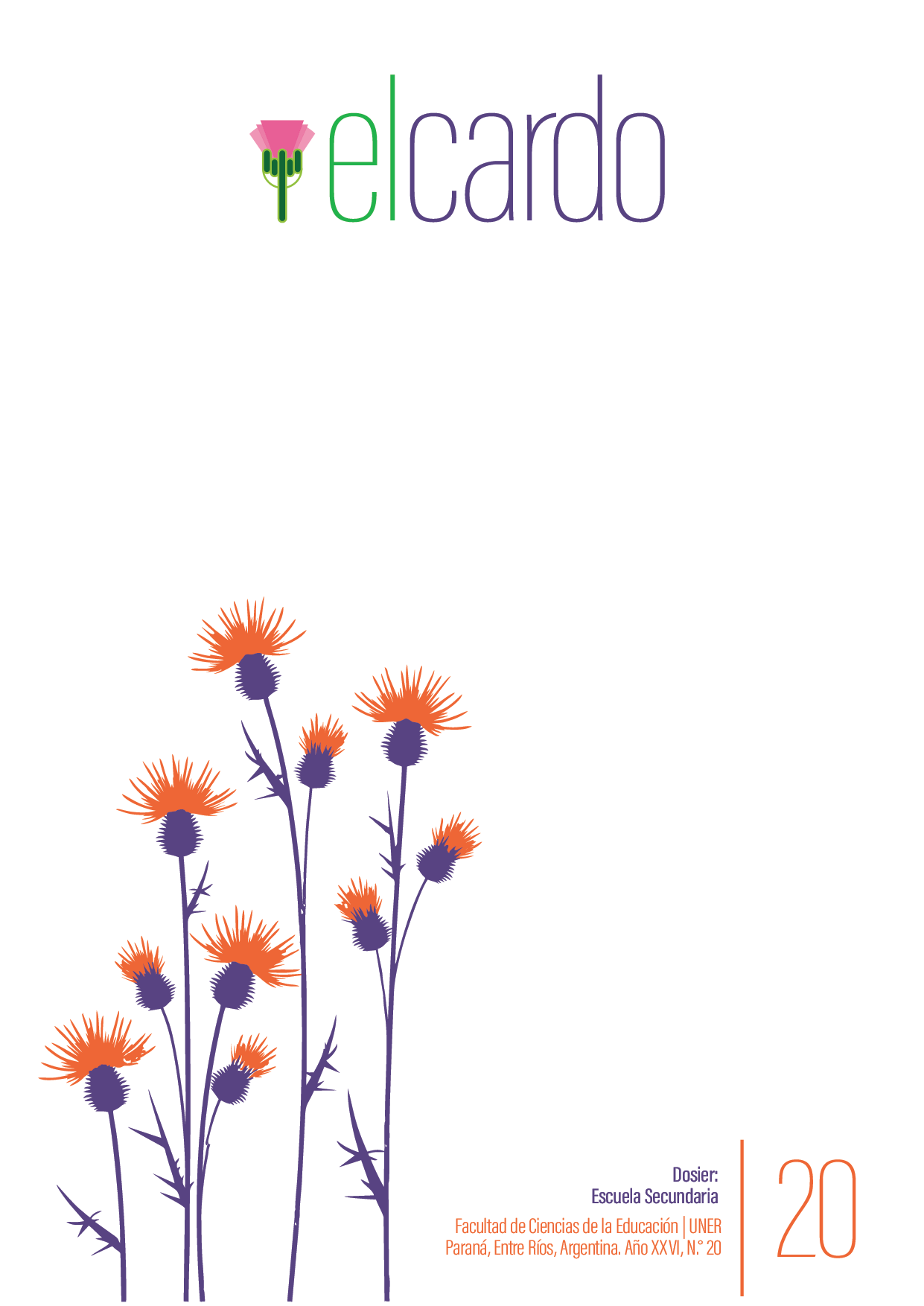El papel mediador de la supervisión escolar en la implementación de normativas académicas en el nivel secundario
Contenido principal del artículo
Resumen
En el artículo se recupera la perspectiva de la supervisión escolar respecto de las normativas académicas que se produjeron en el contexto de pandemia para acompañar las trayectorias escolares en la escuela secundaria. Se examinan datos empíricos procedentes de entrevistas realizadas a un grupo de supervisores que trabajan en diferentes regiones educativas de la provincia del Chaco, con el propósito de reconocer los sentidos sobre la inclusión presentes en sus discursos, y derivados de ellos, las interpretaciones sobre el contenido de las normativas académicas, y el modo en que son traducidas en el acompañamiento a los directivos que deben implementarlas en las escuelas.
Entre los principales hallazgos, se destaca el acuerdo de los supervisores en los sentidos atribuidos a la inclusión y al acompañamiento de las trayectorias escolares, desde una perspectiva que promueve el desarrollo de prácticas pedagógicas innovadoras, adaptadas a los intereses y necesidades de los estudiantes, y la construcción de relaciones personales que permiten un mejor seguimiento de sus trayec torias. Más allá de este acuerdo, los supervisores ex presan distintos posicionamientos respecto de las propuestas pedagógicas incluidas en las normativas, basados en sus propias experiencias educativas y laborales, y sus lecturas sobre las posibilidades y límites de concreción en las escuelas. Desde esos posicionamientos, deciden cómo acompañar a los directivos a través del ejercicio de las funciones que constituyen su trabajo.
En general, el acompañamiento a directivos es planteado en términos de una relación horizontal, entre colegas, donde predominan las funciones de asesoramiento y de formación. Comparte con la noción de acompañamiento a las trayectorias escolares, el énfasis en componentes emocionales como la motivación, el deseo y el compromiso individual, considerados claves para el trabajo escolar, tanto del enseñar como del aprender, al margen de las condiciones organizacionales, administrativas y laborales que organizan la experiencia escolar.
Descargas
Detalles del artículo

Esta obra está bajo una licencia internacional Creative Commons Atribución-NoComercial-CompartirIgual 4.0.
Las ediciones no tienen cargos para las y los autores ni para las y los lectores, y se incita a las y los autores a depositar sus contribuciones en otros repositorios institucionales y temáticos, con la certeza de que la cultura y el conocimiento son un bien de todos y para todos. El Cardo permite la reutilización luego de su edición (Post print) citando la autoría y la fuente original de su publicación. Su uso no puede ser con fines comerciales.
Citas
Almandoz, M. R., & Vitar, A. (2008). Caminos de innovación: las políticas y las escuelas. En M. Almandoz; F. Beltrán, C. Ferretti, F. Jódar, G. Lobo, A. San Martín, L. Sinisi, A. Vitar, D. Zibas, Gestión de innovaciones en la enseñanza media, pp. 15-47. Santillana.
Arroyo, M., y Castro, A. (2023). Aproximaciones a la regulación normativa sobre los procesos de escolarización en la escuela secundaria en contexto de pandemia en la Argentina. De cómo se intentó encauzar la irrupción de lo inédito. Revista Espacios en blanco. Serie Indagaciones, 1(33), 13–26. https://ojs2.fch.unicen.edu.ar/ojs-3.1.0/index.php/espacios-en-blanco/article/view/1428/1263
Avelar, M. (2016). Entrevista con Stephen J. Ball: Su contribución al análisis de las políticas educativas. Archivos Analíticos de Políticas Educativas, 24(24). https://epaa.asu.edu/index.php/epaa/article/view/2368/1747
Ball, S.; Maguire, M. y Braun, A. (2016). Como as escolas fazem as políticas. Editora UEPG.
Beech, J. y Meo, A. I. (2016). Explorando el uso de las herramientas teóricas de Stephen J. Ball en el estudio de las políticas educativas en América Latina. Archivos Analíticos de Políticas Educativas, 24(23). DOI: http://dx.doi.org/10.14507/epaa.24.2417
Carranza, A. (octubre de 1998). La Administración como campo de formación del pedagogo [Exposición de documento]. Encuentro de cátedras de Política, Planeamiento y Administración de la Educación de Universidades Nacionales. Córdoba, octubre de 1998.
Carron, G. y De Grauwe, A. (2003). Cuestiones de actualidad en supervisión: una revisión de la literatura, UNESCO, International Institute for Educational Planning. https://unesdoc.unesco.org/ark:/48223/pf0000111916_spa
Dufour, G. (2008). El rol de los supervisores e inspectores en el gobierno del sistema educativo argentino. Aique Grupo Editor.
Ezpeleta, J. (2004). Innovaciones educativas. Reflexiones sobre los contextos en su implementación. Revista Mexicana de Investigación Educativa, 9(21), 403-424. https://www.redalyc.org/pdf/140/14002106.pdf
Fontana, A., & Garay, A. (2015). Inclusión y calidad: una apuesta de las políticas socioeducativas. En A. Fontana (Coord.), Problemas, estrategias y discursos sobre las políticas socioeducativas, pp. 182-208. Ministerio de Educación de la Nación.
Hirschberg, S. (2013). La supervisión educativa en nuestro país: el trabajo del supervisor en cinco jurisdicciones (Serie La Educación en Debate, número 12). Ministerio de Educación de la Nación. http://www.bnm.me.gov.ar/giga1/documentos/EL006494.pdf
Oszlak, O. y O’Donnell, G. (1981). Estado y políticas estatales en América Latina: hacia una estrategia de investigación. Centro de Estudios de Estado y Sociedad (CEDES), Buenos Aires, Documentos G.E. CLACSO, N.° 4.
Sagastizabal, M. A. y Perlo, C. (2002). La investigación-acción como estrategia de cambio enlas organizaciones. Editorial Stella, Ediciones La Crujía.

